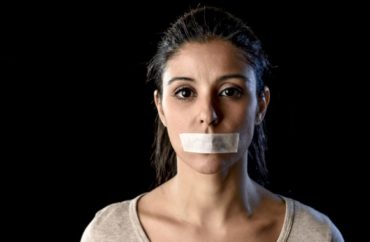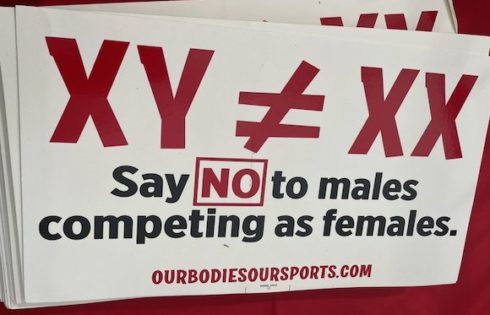
‘For now, at least, overbroad college bias teams at schools not named Virginia Tech can go about their creepy business’
The ramifications of the Supreme Court’s recent decision not to take on the contentious issue of campus bias response teams will include students continuing to “self-censor,” a free speech watchdog said.
An estimated 450 bias response teams continue to operate on college campuses nationwide, serving as a mechanism for students to report each other and professors to administrators for conduct they find offensive.
Zach Greenberg, senior programs officer with the Foundation for Individual Rights and Expression, said without a decision on the issue from the Supreme Court, precedent lies with regional courts and student free speech will suffer.
“Students will self-censor if they know that their speech can be reported to administrators by their fellow students, by the professors, by anyone on campus,” Greenberg said in a phone interview with The College Fix.
But the freedom of ideas “should be the hallmark of college education,” he added.
At issue is the Supreme Court’s early March decision to reject an appeal challenging a now-defunct bias response team at Virginia Tech, which allowed students to report incidents of alleged bias that opponents equated to “speech police.”
The court said the dispute concerning Virginia Tech’s policy is now moot, meaning it is no longer a live controversy, because the policy was discontinued after the initial lawsuit was filed.
Virginia Tech President Timothy Sands told the court that the Bias Intervention and Response Team, or BIRT, was terminated last summer and that the decision “was not prompted by the Speech First lawsuit,” The Wall Street Journal reported.
However, two Bush-appointed justices, Samuel Alito and Clarence Thomas, presented a dissenting opinion that echoed Greenberg’s argument that the court’s decision leaves the door open for student censorship on college campuses nationwide.
“This petition presents a high-stakes issue for our Nation’s system of higher education. Until we resolve it, there will be a patchwork of First Amendment rights on college campuses: Students in part of the country may pursue challenges to their universities’ policies, while students in other parts have no recourse and are potentially pressured to avoid controversial speech to escape their universities’ scrutiny and condemnation,” the dissent stated.
The two justices further argued reports to a bias response team “can have weighty consequences,” pointing out the team includes university officials from the dean’s office, DEI department, and even campus police.
Students will likely “self-censor, fearing the consequences of a report to [the bias response team] and thinking that speech is no longer worth the trouble,” they noted. “…This seems particularly true regarding controversial issues where dissenting opinions might be deemed biased.”
The executive director of Speech First, the nonprofit committed to safeguarding freedom of speech on college campuses that brought the suit against Virginia Tech, voiced her disappointment with the decision but promised to continue fighting the 450-plus “speech police” policies at other colleges nationwide.
“While we are disappointed with the Supreme Court’s decision today, Speech First will continue to fight for campus free speech and we will continue to challenge policies like Bias Response Teams (BRTs) that actively chill student speech,” Executive Director Cherise Trump said in a news release sent to The College Fix.
“I agree with the dissenting opinion that these policies are deeply concerning for the state of free speech on college campuses… There is simply no bigger mechanism on college campuses that serves to silence, deter, and chill student speech.”
With its decision, the Supreme Court vacated the Fourth Circuit’s decision with instructions to dismiss, not setting any precedent.
The case against Virginia Tech stems from an April 2021 lawsuit filed by Speech First. The Fourth Circuit Court of Appeals in Richmond, Virginia, delivered a 2-1 decision last year that ruled in the college’s favor, claiming that “the First Amendment does not stand in the way of modest efforts to encourage civility on college campuses.”
The lone dissenter in that case was Reagan-appointed U.S. Circuit Judge J. Harvie Wilkinson III, who authored a 38-page dissent.
“It takes courage to express unpopular or ‘incorrect’ views, even under the very best of circumstances. Pile BIRT on top of all this, and students with pro-life, anti-affirmative action, restrictive immigration views and traditional religious beliefs have been made conspicuous targets,” the judge had argued.
In the wake of the Supreme Court’s ruling, conservative columnist George Will said students now remain at the mercy of the lower courts.
“The name ‘Bias Intervention and Response Team’ radiates prejudgment by the university, which preserves a file of all complaints,” Will wrote in an op-ed last week. “Students in regions covered by different circuit courts will be able to challenge oppressive school administrations. Students in less fortunate regions can still be pressured to avoid controversial speech.”
A Wall Street Journal editorial pointed out that the hundreds of bias response teams can remain operational under the ruling, calling that a troubling predicament.
“Since the case won’t be heard, the Justices vacated the Fourth Circuit’s ruling, to keep it from setting precedent,” the Journal wrote. “Yet the frustrating outcome remains: For now, at least, overbroad college bias teams at schools not named Virginia Tech can go about their creepy business.”
MORE: Amid lawsuit, judge voices criticism of Virginia Tech policies that limit student speech
IMAGE: Marcos Mesa Sam Wordley / Shutterstock
Like The College Fix on Facebook / Follow us on Twitter






Please join the conversation about our stories on Facebook, Twitter, Instagram, Reddit, MeWe, Rumble, Gab, Minds and Gettr.